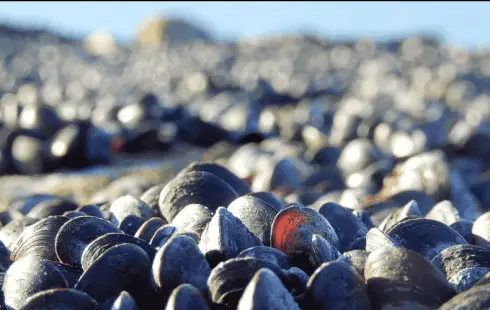
Fully Funded Scholarship Opportunity at the Bavarian International School for 2026-27
Section: News
 The relentless expansion of non-native species poses a significant threat to ecosystems, a concern currently unfolding in Austria. Renowned for its picturesque landscapes adorned with mountains and lakes, Austria's natural beauty is now under siege by an invasive intruder: the quagga mussel, a warning issued by the Austrian Ministry of Agriculture, Forestry, Regions, and Water Management.
The relentless expansion of non-native species poses a significant threat to ecosystems, a concern currently unfolding in Austria. Renowned for its picturesque landscapes adorned with mountains and lakes, Austria's natural beauty is now under siege by an invasive intruder: the quagga mussel, a warning issued by the Austrian Ministry of Agriculture, Forestry, Regions, and Water Management.
Originating from the Black Sea region, these mussels, capable of reaching sizes of up to four centimeters, have infiltrated Austrian lakes through transportation pathways, as detailed on the ministry's official website. Transport mechanisms, such as boat movements between different water bodies, facilitate their dispersion.
The quagga mussel's robust nature enables it to withstand harsh conditions, surviving in temperatures as low as five degrees Celsius and thriving in nutrient-deficient environments. With the ability to inhabit depths of up to 100 meters and reproduce almost year-round, it outcompetes indigenous species, establishing dominance and expanding aggressively. Efforts to curb its spread have proven challenging, with a study indicating minimal success in containment measures.
The invasive presence of quagga mussels exacts a toll on water infrastructure, causing blockages in pipes and filters. Moreover, their voracious filter-feeding behavior deprives water of essential algae, a vital food source for plankton, disrupting the aquatic food chain and impacting fish populations, thus affecting fishing yields.
Beyond ecological repercussions, the tourism sector faces repercussions from the invasive species. Their razor-sharp edges pose risks to swimmers in shallow waters, while also inflicting damage on boats and pontoons, resulting in escalated maintenance costs. Notably, several water bodies have already fallen victim to mussel infestation, including Lake Constance, Upper Austrian lakes like Attersee, Mondsee, and Traunsee, Carinthian Lakes, Wolfgangsee and Obertrumer See in Salzburg, and even the old Danube in Vienna.
The invasive threat extends beyond Austria's borders, necessitating collaborative efforts for mitigation. Encouraging preventive measures, such as thorough cleaning of sports equipment and swimwear post-swimming, particularly with hot water, is crucial. Concurrently, neighboring countries like Germany and Switzerland grapple with similar challenges, with Lake Constance serving as a prime example. Rigorous strategies to combat quagga mussels are under evaluation, underscoring the urgency of addressing this pervasive issue.
Moreover, Germany faces its own battles against invasive species, with beetles and crayfish wreaking havoc on Bavaria's flora and fauna, while the rapid proliferation of the Asian hornet poses additional concerns. These multifaceted challenges demand concerted efforts and innovative solutions to safeguard biodiversity and preserve fragile ecosystems.
Image by Hans Bijstra from Pixabay

Section: News

Section: Arts

Section: Travel

Section: Arts

Section: Arts

Section: Arts

Section: Fashion

Section: Politics

Section: Fashion

Section: News
Both private Health Insurance in Germany and public insurance, is often complicated to navigate, not to mention expensive. As an expat, you are required to navigate this landscape within weeks of arriving, so check our FAQ on PKV. For our guide on resources and access to agents who can give you a competitive quote, try our PKV Cost comparison tool.
Germany is famous for its medical expertise and extensive number of hospitals and clinics. See this comprehensive directory of hospitals and clinics across the country, complete with links to their websites, addresses, contact info, and specializations/services.
Join us at the Kunstraum in der Au for the exhibition titled ,,Ereignis: Erzählung" by Christoph Scheuerecker, focusing on the captivating world of bees. This exhibition invites visitors to explore the intricate relationship between bees and their environment through various artistic expressions,...



No comments yet. Be the first to comment!